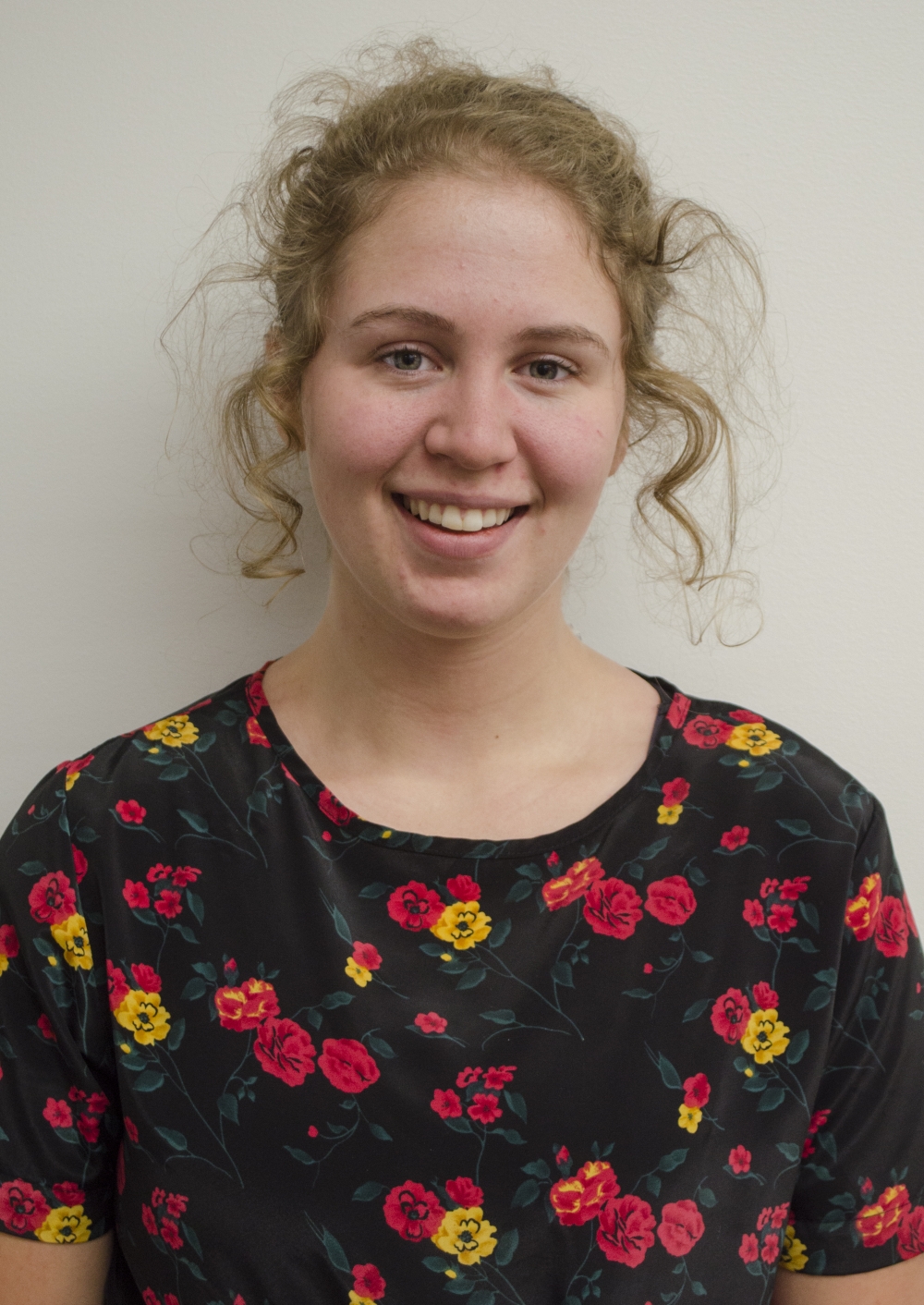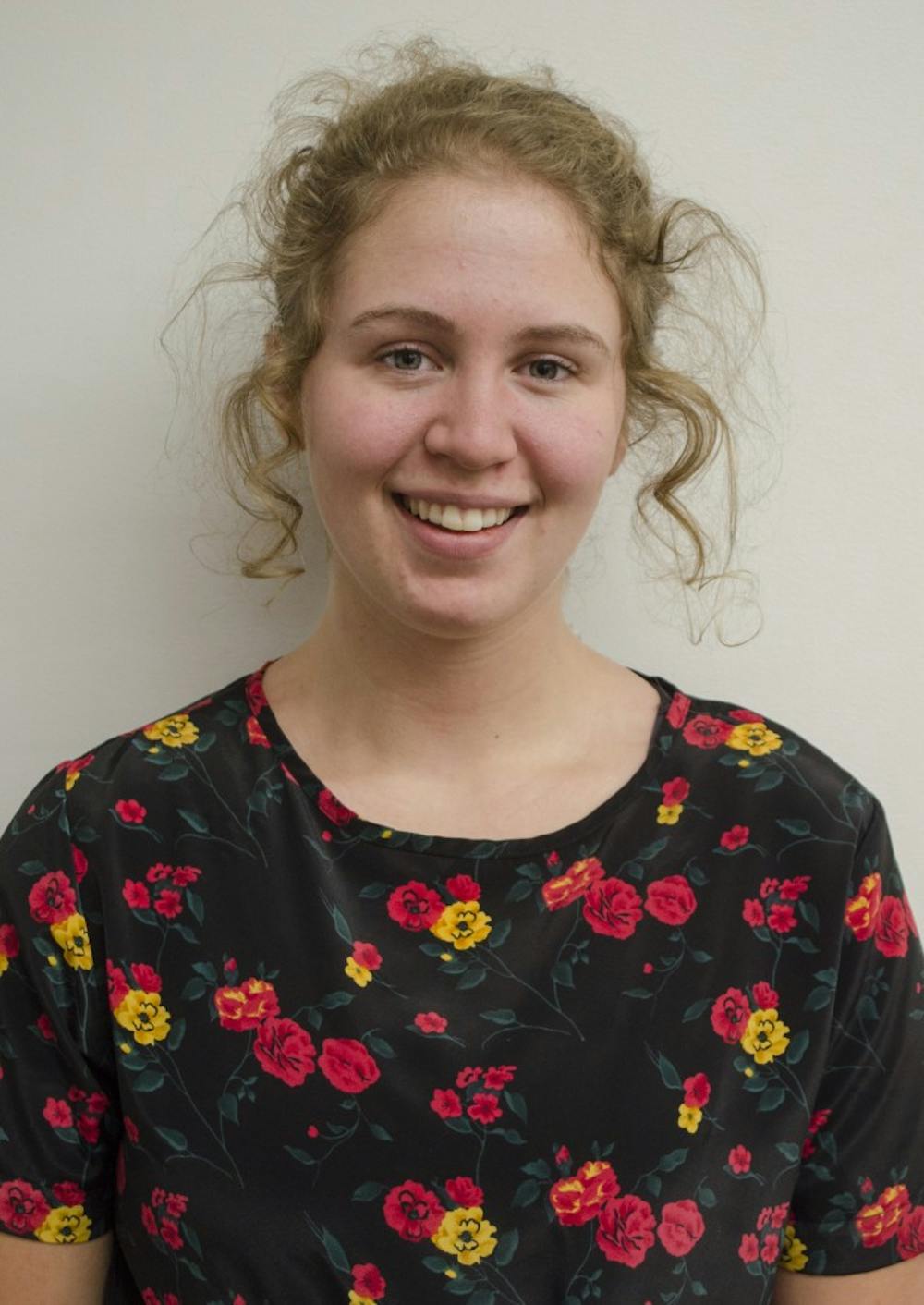Hannah Schneider is a junior communications major and creative writing minor and writes 'Schneid Comments' for the Daily News. Her views do not necessarily agree with those of the newspaper. Write to Hannah athmschneider@bsu.edu.
Eating disorders don’t exist in a vacuum. Despite being very real, possibly fatal illnesses, they don’t appear like colds. They are a result of many, many different factors, but the one I want to focus on is the concept of beauty. The cultural conviction and affinity for meeting a certain specific ideal.
I don’t know what it's like to feel like I don’t have an expiration date. My whole life, I have felt like I needed to be beautiful to be taken into account. Now that I am 20 years old, and by some standards "beautiful," I worry about its fleeting nature and what will happen when that so-called "beauty" fades. What I mean by that is, from the moment I started to obsess over my dolls and princess movies as a child to now, I have always had the concept of my beauty resting in view. I need to have these things in order to be valued. I must strive for them.
I remember being 86 pounds and worrying about how I wanted to be back in the 70s. I was nine. I didn’t have an ED then, but it is important to recognize our thoughts and frames of reference, especially at young ages. For the 10 years it took me to escape my teens, I was inundated with messages about my body. What my body was supposed to do, how it was supposed to curve and who I was supposed to present it for.
Not only do we think we know what our bodies should look like, but we also begin to hold assumptions and expectations for others. That’s something I've realized recently. Even as a liberal feminist who strives to be an accepting person, I too expect beauty from women and bulk and chisel from men. This is because it is what I constantly see portrayed in the media I consume. I am working to reconceptualize my preconceived expectations, but it's hard after 20 years of consuming media's misleading messages.
 |
|---|
There is nothing wrong with feeling, wanting or being beautiful. But it seems to me that the definition of beauty is entirely too narrow and exclusively meant for people to match what brands and companies that have been deemed desirable. Blonde, tall, tan, thin and white for women, for example.
Naomi Wolf, author of the essay, “The Beauty Myth” explains that after the feminist movement, in which mostly middle class women were liberated from traditional roles within domestic settings, the beauty industry exploded in the following decades. The cosmetic, weight loss and skin care industries all but began, and women started to be featured in advertisements differently. And now, according to Anorexia Nervosa and Associated Disorders:
- The body type portrayed in advertising as the ideal is possessed naturally by only 5 percent of American females.
- 47 percent of girls in fifth-12th grade reported wanting to lose weight because of magazine pictures.
- 69 percent of girls in fifth-12th grade reported that magazine pictures influenced their idea of a perfect body shape.
- 42 percent of first-third grade girls want to be thinner.
- 81 percent of 10-year-olds are afraid of being fat.
The results and harmful effects are not only harmful to women. With men,
- An estimated 10-15 percent of people with anorexia or bulimia are male.
- Men are less likely to seek treatment for eating disorders because of the perception that they are “woman’s diseases.”
Overall, these diseases are incredibly serious and life threatening. However, they aren’t like colds where all of sudden one just "has an eating disorder." They develop over time and are, in part, a response for the warped images we see and are manipulated into striving for.
As a communications major, I recognize the necessity that advertising, media and entertainment possess in our culture and overarching economic industry.
As a woman, I recognize the fear of not being valuable if I am not beautiful.
At what point did our bodies become commodities? At what point did these industries decide they needed to convince men and women that they were lacking so much... To convince them to consume and syndicate a completely unrealistic idea?
My body has rarely ever felt like my own, and I have been so unfair to it. I have begun to apologize for the anger that I have had toward it, but until these overarching images of slenderness and flawlessness are reconciled in some way, many will have similar or even worse experiences.





